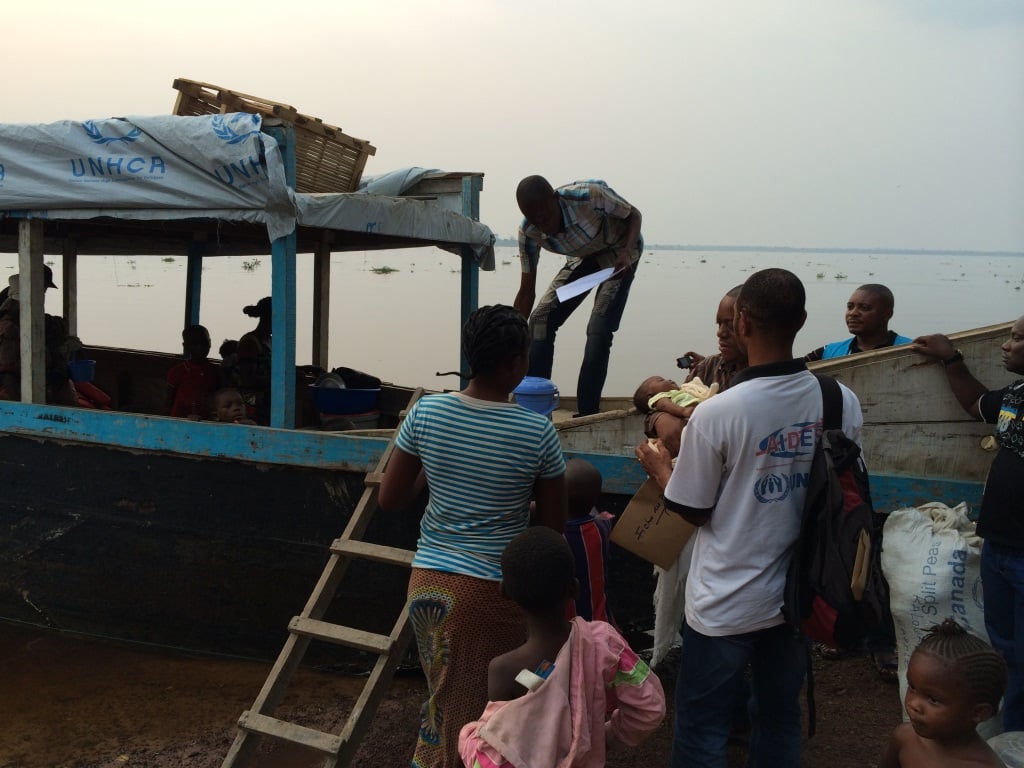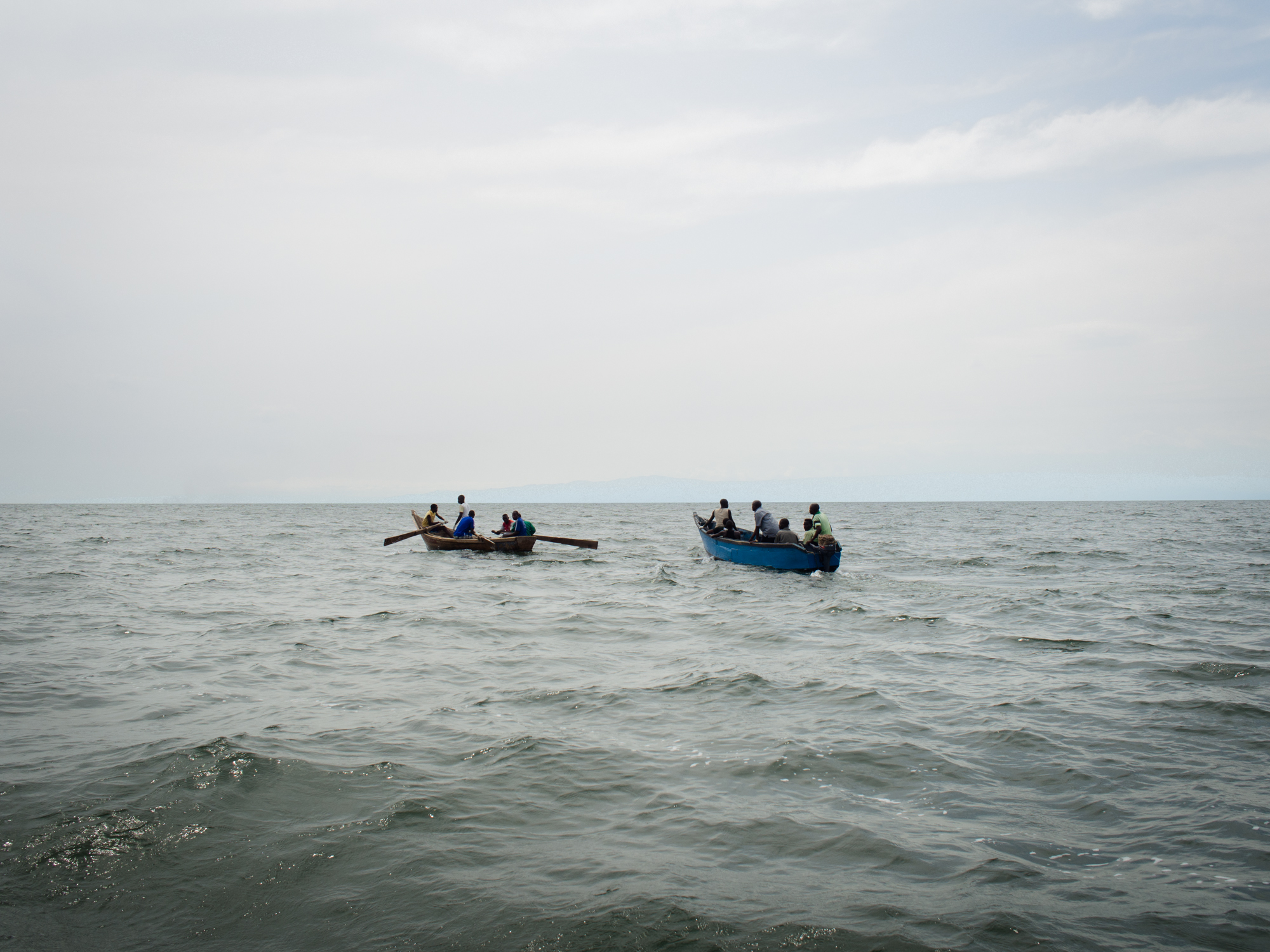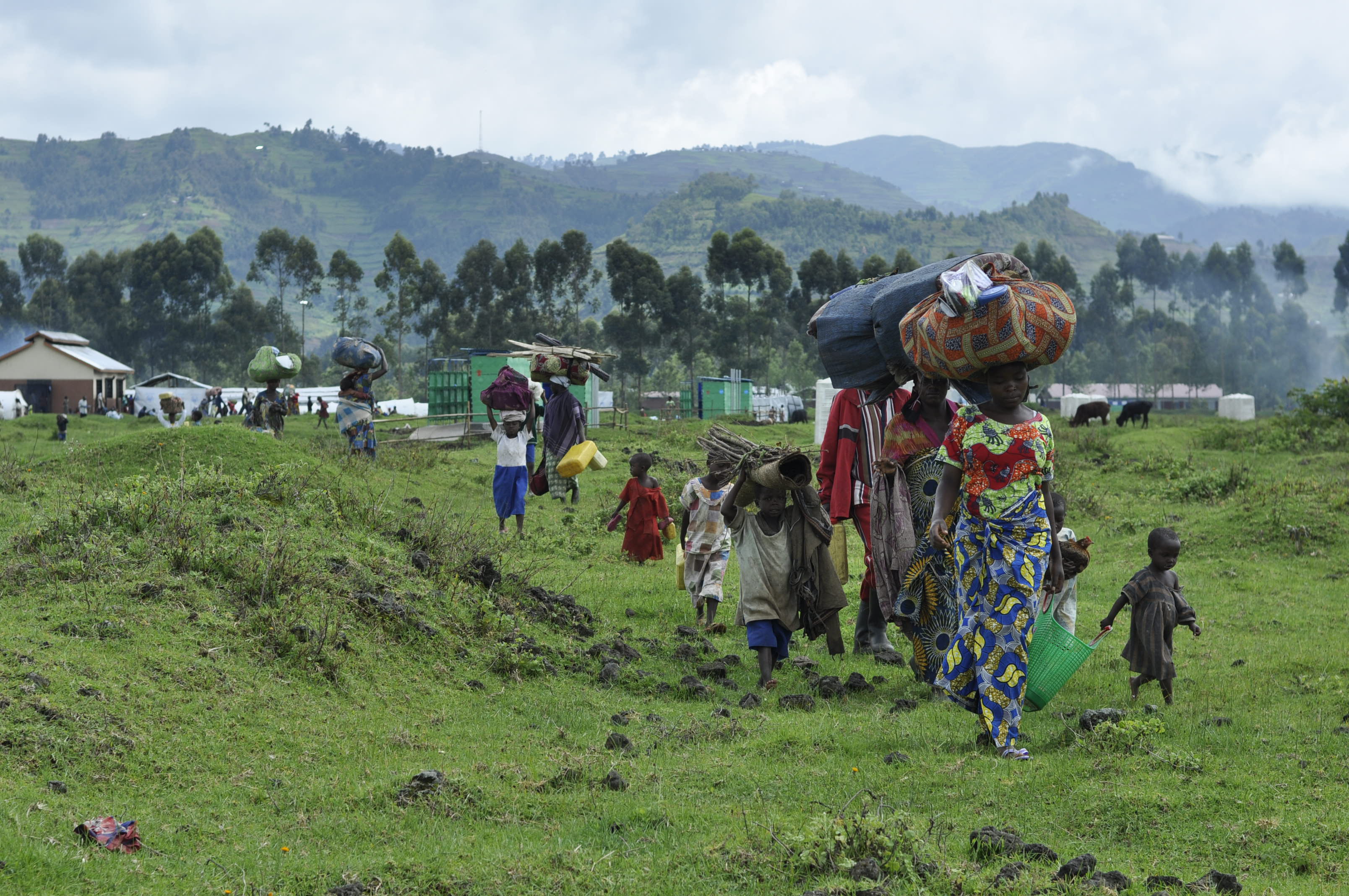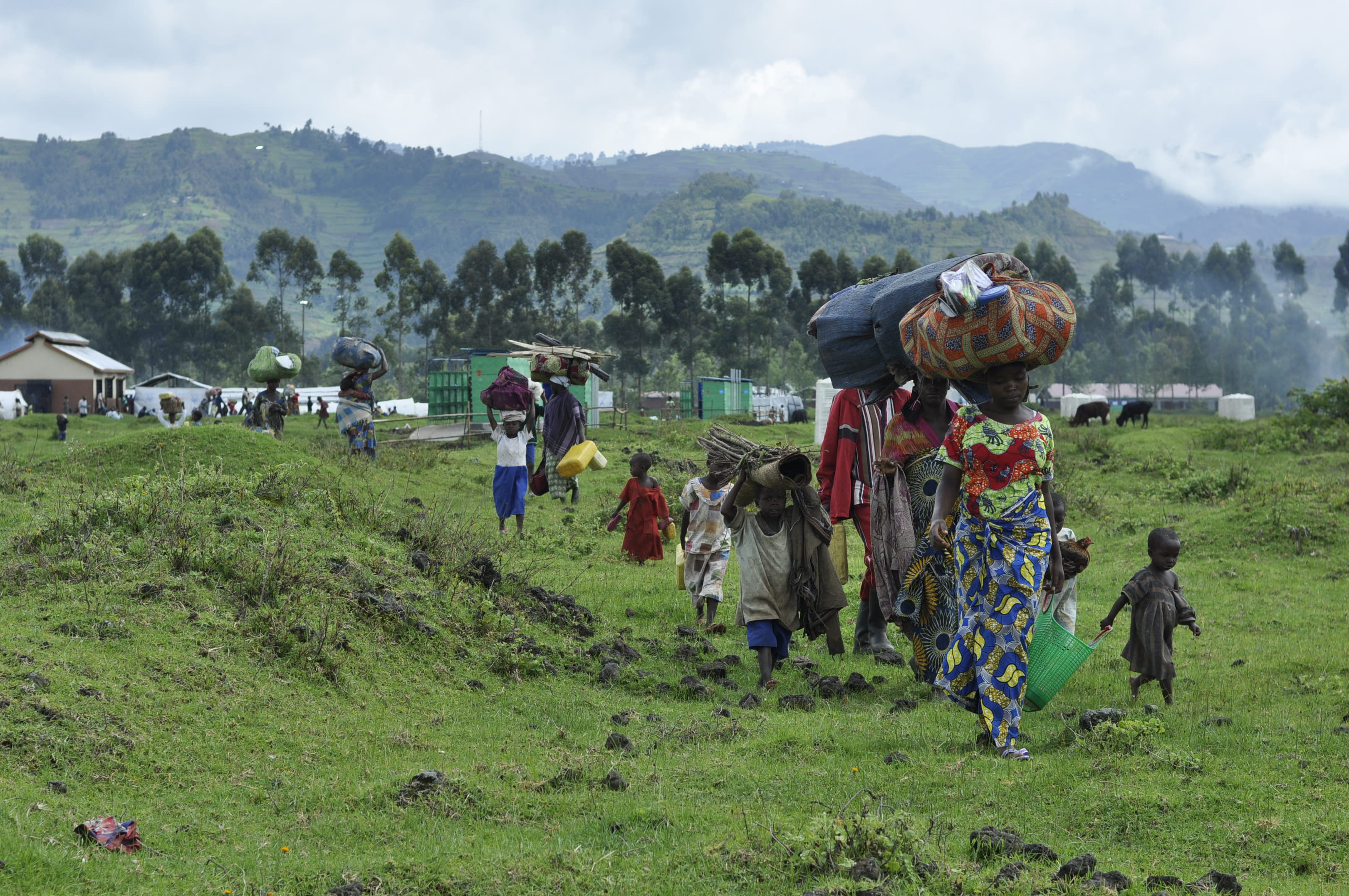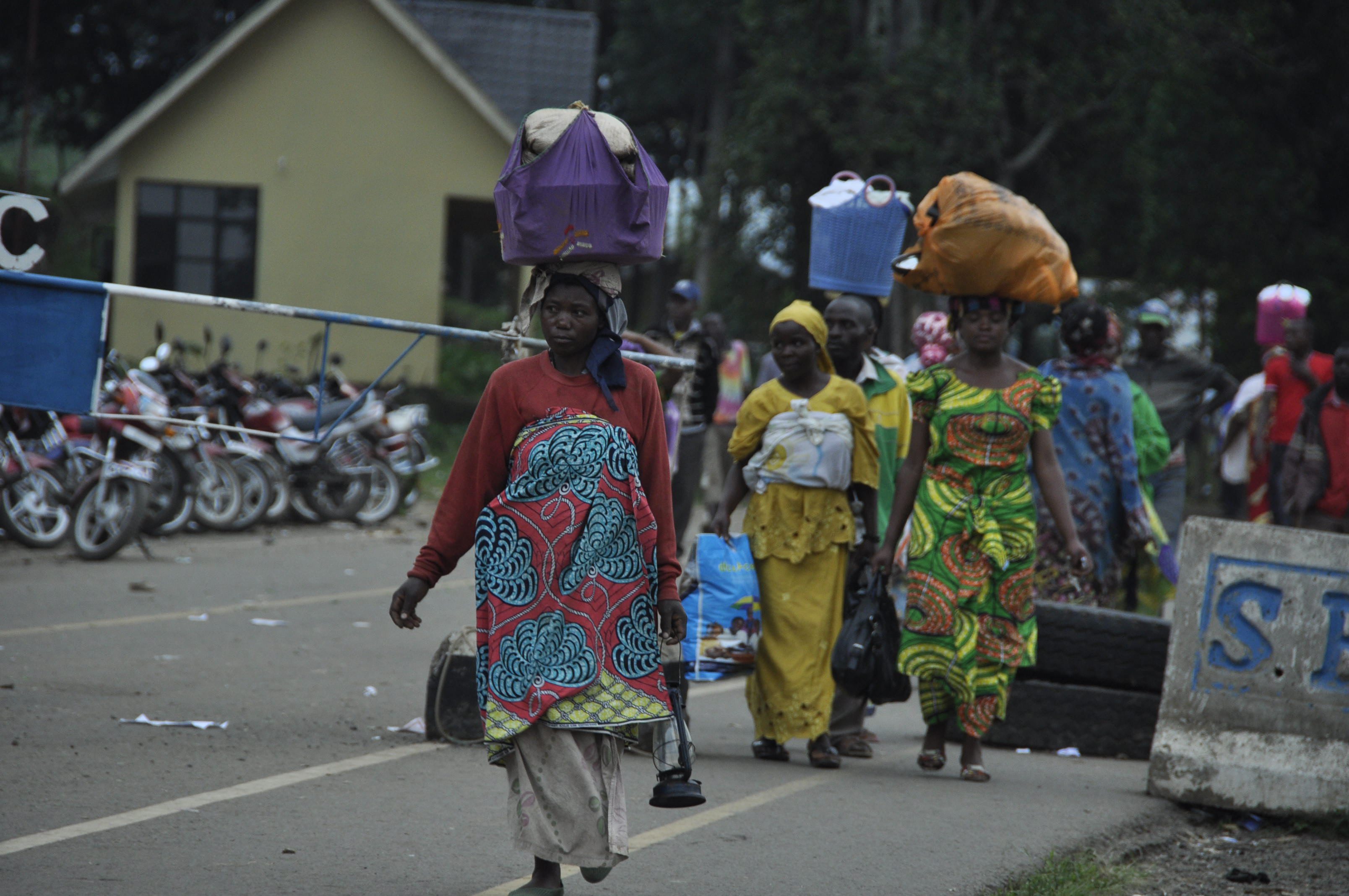Congolese refugee triumphs over bizarre persecution to inspire refugee women
Congolese refugee triumphs over bizarre persecution to inspire refugee women
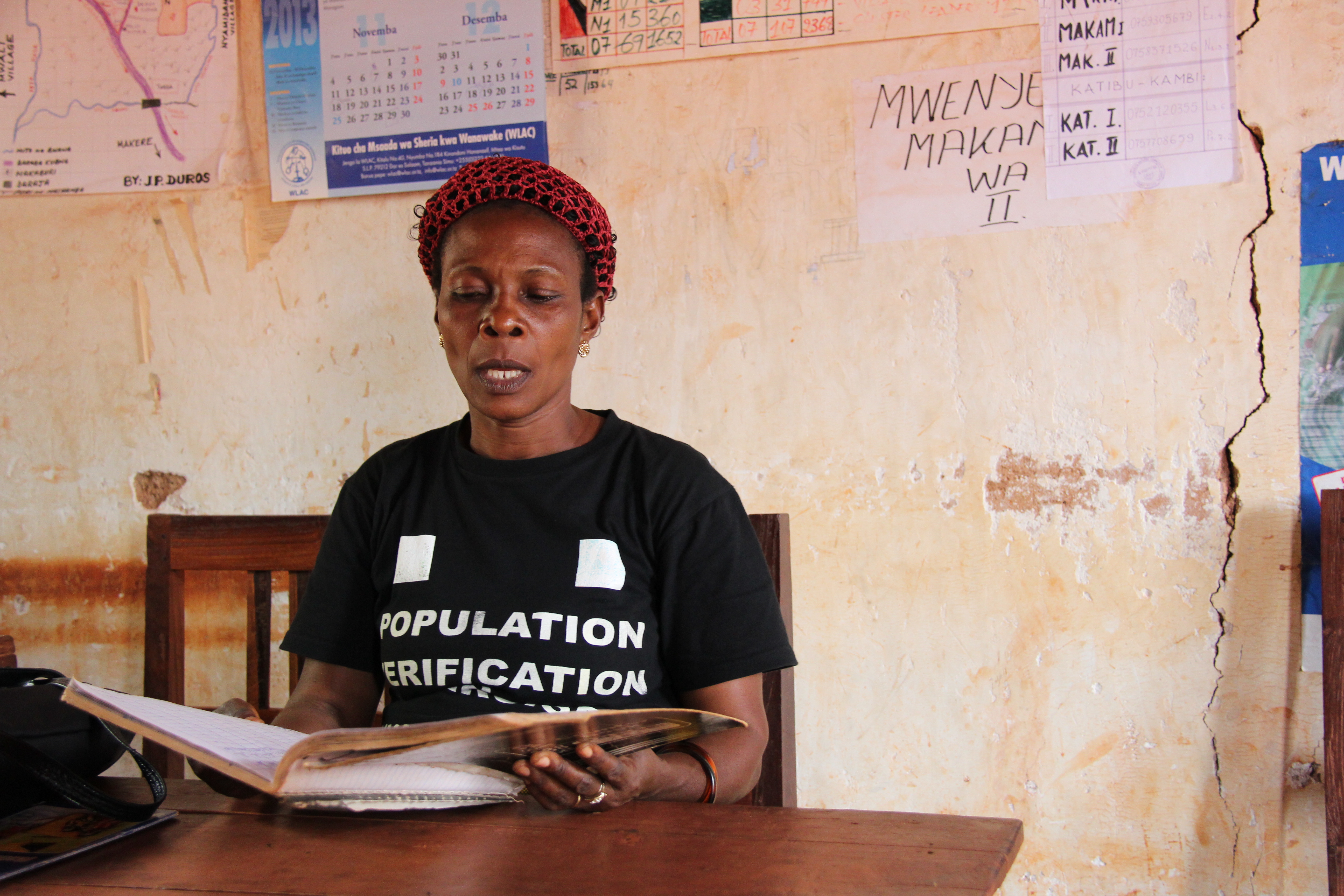
Mwavita Mlasi, in the office of the Executive Committee at Nyarugusu Refugee Camp, uses her position as vice president to help people find solutions to their problems.
NYARUGUSU REFUGEE CAMP, Tanzania, April 3 (UNHCR) - Inside a dark youth centre in the heart of Nyarugusu Refugee Camp, a tall, slim woman rises proudly from her plastic chair and introduces herself. "My name is Mwavita Mlasi," she says loudly in English, "And I am the camp Vice President."
The other women's faces break into smiles as they applaud and cheer on their friend and fellow leader. The two phrases are some of the only English Mwavita knows, but she executes them with precision and conviction.
Mwavita is one of nearly 70,000 refugees, mostly from the Democratic Republic of the Congo (DRC), in Nyarugusu in Tanzania's northwest. Like Mwavita, roughly half the camp's many leaders are women, the result of a UNHCR commitment to encourage refugee women to take control of their lives while in exile.
Fighting in the eastern DRC has displaced about three million people over the last 11 years, both inside and outside the country. But Mwavita fled persecution from a surprising source - her own family.
When she was just 14, the people she believed were her parents threatened to kill her when she refused to marry her own brother. That was when, to her shock, "my mother told me she wasn't my real mother," she says through an interpreter. "I was adopted as a baby because my parents had died." Even though her "brother" turned out not to be a blood relative, she still could not contemplate marrying him.
But that was not the end of the horror for the teenager. Other relatives tried to marry her off to another man to profit from her dowry. "That's why they threatened me. They were angry." Even today, at the age of 47, "this conflict affects my relationship with my family," she says, her voice cracking as she wipes away tears.
Unable to rely on her real family, her community - in DRC and in the camp -- became her home. Mwavita says that's where she learned how to be a good leader. In 2000, Mwavita was first elected to a leadership position in Lugufu Refugee Camp, which has since closed.
She then worked her way up through all levels of camp leadership to the top: "Now, I am the Vice President of Nyarugusu," she says. "As a leader, I always collaborate with people. I call meetings and share information with others. I like it when people work together to solve problems in the community."
Mwavita has represented women for more than a dozen years now, but she admits being a female leader isn't easy. She says cultural practices in her community cause men to view women as inferior, despite more and more women becoming leaders.
Fellow refugees also question her lack of formal education. "When I am in a meeting, even if I contribute a good idea, men tell me, 'What can you tell us? You did not even go to school'." But she does not let the criticism stop her from working to help future generations. "I can help our young girls get an education and become powerful so they don't face what I face now," she says.
Camp President Mateso Jean Pierre Duros says women leaders like Mwavita are a valuable asset. "Sometimes, it isn't comfortable for men leaders or the women to discuss their problems with each other," he says. "Women are more comfortable being heard by other women. So we really need women leaders."
Joyce Mends-Cole, UNHCR's representative in Tanzania, says women like Mwavita, who "have taken the challenges of their difficult lives and used their determination and strength to be examples of leadership" have a great impact on the lives of many.
Now Mwavita is looking to inspire a new generation of leaders. She offers refugee girls this advice:
"Have confidence. I'm a leader because above all I felt that I was capable of being a leader. Also, trust and respect the community. And treat everyone with respect. We're all human beings."
By Shirley Camia in Nyarugusu Refugee Camp, Tanzania

